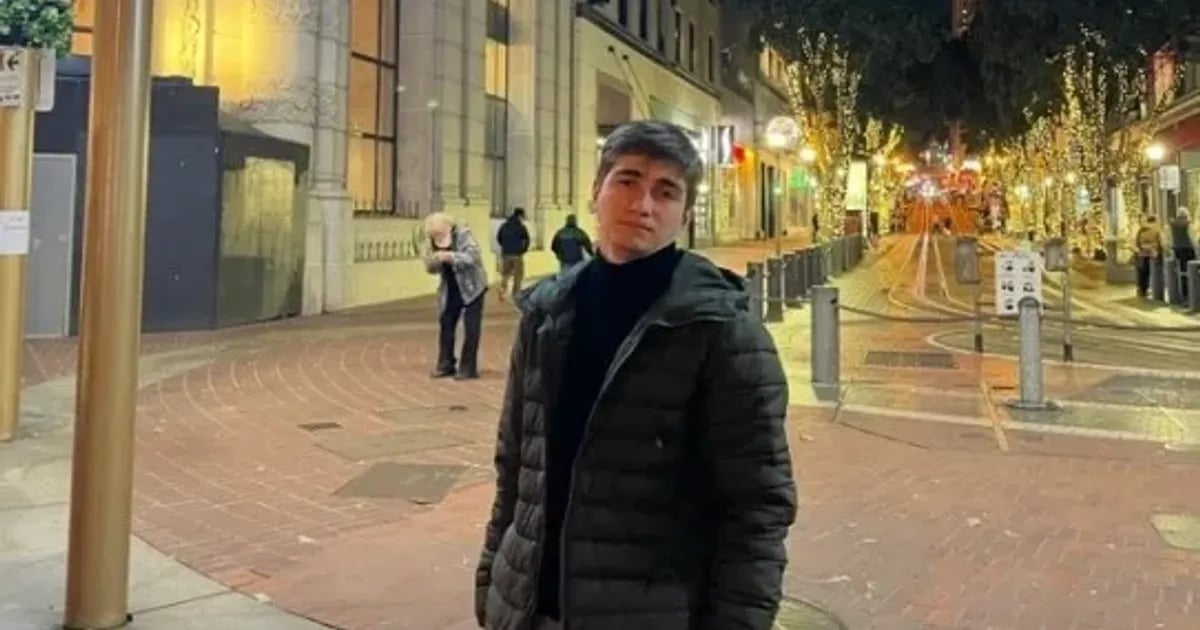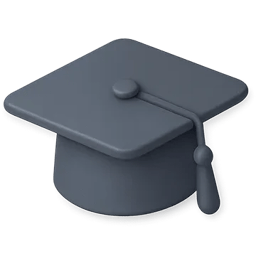خلفيتي
أنا تيغران. ولدت في إيجيفان، أرمينيا، على بعد ساعتين بالسيارة شمال يريفان، في منطقة تافوش. نشأت في كل من إيجيفان وقرية مجاورة تسمى أتشاجور. بالنسبة للمدرسة الثانوية، ذهبت إلى ثانوية إيجيفان، وهي مدرسة حكومية عادية. هناك بدأ كل شيء.
لماذا اخترت الدراسة في الخارج؟ لماذا الولايات المتحدة؟
بصراحة، لم أبدأ بحلم كبير للدراسة في الخارج. لكن الذهاب إلى الولايات المتحدة كان دائمًا في ذهني - نوع من حلم الطفولة من مشاهدة الأفلام والمسلسلات التلفزيونية. ومع ذلك، لم يبدُ واقعيًا في البداية.
تغير كل شيء عندما شجعتني والدتي على التقدم لبرنامج ممول فيدراليًا في الولايات المتحدة يسمى Competitive College Club - 11 شهرًا من الإرشاد والتحضير المكثف للكلية. هناك أدركت: ليس من المستحيل أن يتم قبولك في أفضل الجامعات في الخارج - حتى من مدرسة عامة في بلدة صغيرة في إيجيفان.
بمجرد أن رأيت الفرصة، قررت أنه يجب علي اغتنامها.
اخترت الولايات المتحدة على وجه الخصوص لأن معظم أفضل 50 جامعة في العالم موجودة هناك - باستثناء ربما أكسفورد وكامبريدج. أيضًا، في أرمينيا، للحصول على تأجيل الخدمة العسكرية للتعليم، يجب أن تكون جامعتك ضمن أفضل 50 جامعة عالميًا. لذلك كان الأمر منطقيًا.

لماذا بيركلي؟ + الخيارات الأخرى التي كانت متاحة لي
كنت خائفًا حقًا من عدم قبولي في أي مكان، لذلك تقدمت إلى أكثر من 20 جامعة. كانت جامعة برينستون هي حلمي - لكنني رُفضت. ثم جاءت UCLA، والتي كانت خياري الأول بعد ذلك - رُفضت مرة أخرى.
من المضحك أن هناك الكثير من الطلاب المرفوضين من UCLA في بيركلي، والعكس صحيح. هكذا تسير الأمور ببساطة.
في النهاية، تم قبولي في حوالي 9 أو 10 جامعات، بما في ذلك NYU، نورث وسترن، جونز هوبكنز، جامعة ميشيغان - آن آربور، وجامعة مينيسوتا. لكنني اخترت جامعة كاليفورنيا بيركلي - لأنها كانت الجامعة الأعلى تصنيفًا التي تم قبولي فيها.
لم تتح لي الفرصة لزيارة أي من الحرم الجامعية (كما يفعل الطلاب الأمريكيون غالبًا)، لذلك اعتمدت في قراري على البحث والتصنيفات فقط. وأنا سعيد لأنني اخترت بيركلي. منطقة الخليج، سان فرانسيسكو، وأجواء الحرم الجامعي - كل شيء يبدو مناسبًا تمامًا.
دراسة ما قبل القانون مع تخصص في العلوم السياسية
ما قبل القانون ليس تخصصًا رسميًا في الولايات المتحدة - إنه يشير فقط إلى مسار الإعداد لكلية الحقوق. من الناحية الفنية، يمكن لأي تخصص أن يكون ما قبل القانون، حتى الفن أو التصميم.
أنا أتخصص في العلوم السياسية، وهو أحد التخصصات الأكثر شعبية لطلاب ما قبل القانون. في الوقت الحالي، لا أضع خططًا ثابتة. في الواقع، أميل أكثر إلى الحصول على درجة الدكتوراه بدلاً من الذهاب إلى كلية الحقوق لأنه يبدو أكثر منطقية عندما أعود إلى أرمينيا بدلاً من الحصول على درجة الـ J.D. (دكتوراه في القانون)، والتي تعد ضرورية لممارسة المحاماة في الولايات المتحدة. قراري يحتاج إلى مزيد من التفكير. لا يزال أمامي عامان حتى أتخرج، لذا لدي الوقت الكافي.
الإحصائيات
خضعت لاختباري IELTS و SAT. قمت بالتحضير لاختبار IELTS عن طريق ركوب الحافلة إلى العاصمة (YVN) والعودة مرتين أو ثلاث مرات في الأسبوع، لأننا لم يكن لدينا مدرس IELTS في إيجيفان. كانت نتيجتي في اختبار SAT جيدة بشكل عام، ولكن كانت لدي درجة منخفضة في قسم اللغة الإنجليزية، لذلك لم أقدمها لأي مدرسة. لحسن الحظ، كانت معظم الجامعات الأمريكية لا تشترط تقديم نتائج الاختبارات في ذلك الوقت - والعديد منها لا يزال كذلك.
أما بالنسبة للمعدل التراكمي، فقد بدأت العمل بجد في الصف الثاني عشر. نظرًا لأنني لم أتمكن من الوصول إلى فصول AP أو دبلومات IB مثل الطلاب في المدارس الأمريكية أو النخبوية، فقد عملت عن كثب مع معلمي - طالبًا مهام إضافية، وحرصت على تميز سجلي الأكاديمي.
كانت جميع درجاتي النهائية تقريبًا 10 من 10.

المقالات وخطابات التوصية
كانت كتابة المقالات مكثفة بشكل جنوني. كنت أبقى في المدرسة حتى الساعة 11 مساءً أو حتى منتصف الليل، جالساً مع مستشار الكلية الخاص بي وأكتب المقالات سطراً بسطر. كنت بحاجة إلى تلك الدفعة، بصراحة. من السهل جداً أن تتشتت - خاصة في عامك الأخير من المدرسة الثانوية.
عادةً لا توجد طريقة محددة تريد الكليات الأمريكية أن تُكتب بها المقالات. لكنهم يبحثون عن شيء ما بالتأكيد. لتسهيل ذلك البحث، لا يُفترض بك أن تروي قصة حياتك بأكملها. كل مقال يجيب على سؤال محدد، مثل سؤال عن القيادة، حيث يجب عليك مشاركة لحظة معينة تبرز مهاراتك.
كن دقيقاً. كن محدداً. لا تكن غامضاً أو فلسفياً. استخدم قصصاً حقيقية.
الأنشطة اللامنهجية
من أين أبدأ؟ منذ الصف الأول، كنت منخرطًا في مدرسة الرقص، ثم انتقلت إلى مدرسة الموسيقى، حيث تعلمت العزف على الجيتار - وكان ذلك إضافة جميلة في طلب القبول الخاص بي.
لقد جربت أيضًا الكثير من الرياضات:
الكاراتيه (لمدة نصف عام - نعم، قمت بإدراج الشهادة!)
المصارعة
السباحة
ليس لدي فكرة عما إذا كانت لجان القبول تنظر إلى كل إنجاز من إنجازاتك، ولكنها بالتأكيد لا تضر.
ما أعتقد أنه كان الأكثر أهمية هو مشاركتي المجتمعية. شاركت في كل منظمة غير حكومية تقريبًا في منطقتنا، مثل الصليب الأحمر الأرمني و Infotun. قمنا بمشاريع تتراوح من التوعية بتلوث الأنهار إلى الوحدة بين كبار السن وصولاً إلى القيادة الشبابية. هذا مهم بشكل خاص لشخص يتقدم لدراسة العلوم السياسية، ولكنه مهم بغض النظر عن التخصص - لإظهار أنك نشط ومنخرط خارج نطاق الدراسة الأكاديمية.
لأنه يمكنك الحصول على معدل تراكمي مثالي 4.0، ولكن إذا لم تغادر منزلك أبدًا؟ من المرجح أن ذلك لن يكون كافيًا.
التمويل
كان هذا الجزء صعبًا.
بصفتها جامعة عامة، لا تقدم جامعات كاليفورنيا مساعدات مالية للطلاب الدوليين. ومع ذلك، خاطرت وقبلت عرض بيركلي - ثم بدأت في التقدم لكل منحة دراسية أرمينية ومصدر تمويل يمكنني العثور عليه.
تقدمت إلى مؤسسة هويس، ومؤسسة أزاريان، وAGBU، والمانحين الفرديين، والبنوك، والشركات. تم رفضي كثيرًا. وأعني كثيرًا جدًا. لكنني لم أتوقف. في مرحلة ما، أرسلت حتى رسالة شخصية إلى رئيس وزراء أرمينيا أشرح فيها وضعي وإنجازاتي. ونجح الأمر - حصلت على معظم تمويلي من الحكومة، والباقي من المنح الدراسية والمانحين الفرديين.
تمكنت من تغطية سنتي الأولى، وقد كررت العملية كل صيف منذ ذلك الحين. الأمر ليس سهلاً، ولكنه ممكن.

الحياة الطلابية في بيركلي
أحبها الآن - لكن البداية كانت صعبة للغاية.
تم رفض تأشيرتي في المرة الأولى. تمت الموافقة عليها بعد 10 أيام، لكن هذا التأخير يعني أنني وصلت متأخرًا إلى الحرم الجامعي. فاتني التوجيه، وجولات الترحيب، ونعم - لم أحصل أبدًا على زجاجة الترحيب الخاصة ببيركلي أو أي من منتجاتها الترويجية!
عندما وصلت بحقيبتين ضخمتين، لم يستقبلني أحد. لم أكن أعرف إلى أين أذهب. انتهى بي الأمر بسؤال فتاة قريبة لاستعارة هاتفها، وساعدتني في معرفة ما يجب فعله - كانت روسية، بالمناسبة، لذا على الأقل كان لدينا بعض اللغة المشتركة.
كنت محظوظًا بوجود زميل رائع في الغرفة قدمني إلى مجموعة أصدقائه. ومع ذلك، كان من الصعب التكيف في البداية. لم أكن قد تحدثت الإنجليزية منذ أن أخذت اختبار IELTS قبل أشهر. لذلك كنت أتحدث بمزيج من اليدين والقدمين وتعابير الوجه.
لكن عندما تكون منغمسًا في البيئة، فإنك تتكيف. ليس لديك خيار آخر.
لم أكن أعرف ما يمكن توقعه من الحياة الطلابية في الولايات المتحدة - ثقافيًا واجتماعيًا وأكاديميًا. لكنني تعلمت. وحاولت الحفاظ على هويتي الأرمنية أيضًا. انضممت إلى جمعية الطلاب الأرمن في الفصل الدراسي الثاني، وقابلت الكثير من الطلاب الأرمن في الحرم الجامعي. بشكل عام، هناك حوالي 200 أرمني في بيركلي في المجموع.
معظم حياتي اليومية، مع ذلك، أقضيها مع أصدقائي من السكن الجامعي.
خطط للمستقبل
في الوقت الحالي، لا أخطط للمستقبل البعيد. قد ألتحق بكلية الحقوق، أو قد أتابع دراسة الدكتوراه. يعتمد القرار على كيفية خدمة كل خيار لي بشكل أفضل عندما أعود إلى أرمينيا. أفضل التركيز على الحاضر لأنك إذا فكرت كثيرًا في المستقبل غير المؤكد، ستفوتك حرفيًا كل ما يحدث معك في تلك اللحظة. هذا صعب في بعض الأحيان - نعم - لكنني مقتنع بأن العيش في الحاضر هو الطريقة الصحيحة لعيش حياتك. بالطبع، هذا لا يعني أنه يجب عليك ترك مستقبلك للصدفة. التخطيط الدقيق مفيد؛ أما الإفراط في التفكير فيه - فلا.
نصائح للمتقدمين الدوليين
اطلب المساعدة. لا تخجل أو تخف من التواصل. من الطبيعي تمامًا ألا تعرف كل شيء - خاصة عندما تتعامل مع نظام تعليمي غير مألوف من بلد آخر.
لا تتردد في الاتصال بالجامعات. العديد من مكاتب القبول مستعدة لمساعدة المتقدمين في المقالات والمساعدات المالية والأسئلة العامة. استخدم هذا المورد - فهو موجود من أجلك.
كن مثابرًا. قد تواجه رفضًا متعددًا - من المنح الدراسية والبرامج وحتى السفارات - ولكن لا تدع ذلك يوقفك. استمر. واصل التقديم.
اعرف قيمتك. أنت لست غريبًا "تحاول الدخول إلى" الجامعات الأمريكية - أنت جزء من نفس مجموعة المتقدمين. أنت تنتمي إلى هناك مثل أي شخص آخر.
استفد من العولمة. اليوم، بفضل الإنترنت والبرامج الدولية، يمكن للطلاب من أماكن مثل القرى الصغيرة في أرمينيا الالتحاق بأفضل الجامعات العالمية. هذه الفرص متاحة لك أيضًا.
إذا شعرت أنه الأمر الصحيح - خذ المخاطرة. سواء كان اختيار جامعة مرموقة مع تمويل غير مؤكد أو السفر إلى بلد لم تره من قبل - في بعض الأحيان، تكون المخاطرة تستحق. كانت كذلك بالنسبة لي.





